Just In
- 12 min ago

- 45 min ago

- 6 hrs ago

- 9 hrs ago

Don't Miss
- Sports
 Who Won Yesterday's IPL Match 33? PBKS vs MI, IPL 2024 on April 17: Mumbai Indians Escape Last-Ditched Fight by Punjab Kings To Win
Who Won Yesterday's IPL Match 33? PBKS vs MI, IPL 2024 on April 17: Mumbai Indians Escape Last-Ditched Fight by Punjab Kings To Win - Movies
 Do Aur Do Pyaar OTT Release Date & Platform: When & Where To Watch Vidya Balan’s Film After Theatrical Run?
Do Aur Do Pyaar OTT Release Date & Platform: When & Where To Watch Vidya Balan’s Film After Theatrical Run? - Finance
 Wipro Q4 Results Preview: Weak Demand Likely To Drag Revenue Sequentially, EBIT Margins Seen Stable
Wipro Q4 Results Preview: Weak Demand Likely To Drag Revenue Sequentially, EBIT Margins Seen Stable - News
 BRS Chief K Chandrasekhar Rao Slams BJP, Says K Kavitha's Arrest Is Vendetta Politics
BRS Chief K Chandrasekhar Rao Slams BJP, Says K Kavitha's Arrest Is Vendetta Politics - Automobiles
 Aprilia RS 457 Accessories: A Detailed Look At The Prices
Aprilia RS 457 Accessories: A Detailed Look At The Prices - Education
 Karnataka SSLC Result 2024 Soon, Know How to Check Through Website, SMS and Digilocker
Karnataka SSLC Result 2024 Soon, Know How to Check Through Website, SMS and Digilocker - Technology
 Nothing Ear, Ear a With ANC, Up to 42.5 Hours of Battery Launched; Check Price and Availability
Nothing Ear, Ear a With ANC, Up to 42.5 Hours of Battery Launched; Check Price and Availability - Travel
Telangana's Waterfall: A Serene Escape Into Nature's Marvels
World Health Day 2022: Common Nutritional Deficiencies Among Indians And Their Food Sources
Every year, 7 April is observed as World Health Day. This global health awareness day is celebrated under the sponsorship of the World Health Organization (WHO). The day marks the founding of WHO, along with raising awareness on the importance of global health.
Initiated in 1948 and coming to effect in 1950, the day aims to create awareness of a specific health theme to highlight a priority area of concern for the World Health Organization. The 2022 theme for World Health Day is "Our planet, our health."
In the event of the global day that aims to improve the global health quotient, let's take a look at some of the common nutritional deficiencies in Indians.
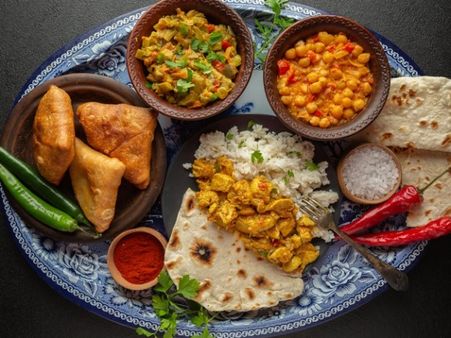
Nutritional Deficiencies Among Indians
Every day, more than 6,000 children below the age of five die in India. More than half of these deaths are caused by malnutrition-mainly the lack of Vitamin A, iron, iodine, zinc and folic acid [1].
There are two types of nutrients, macro and micro, where carbohydrates, fat and protein are macronutrients and should be consumed in larger quantities for energy production and building and maintaining muscle mass. On the other hand, vitamins and minerals are micronutrients that are required in smaller quantities [2].
Vitamins help to regulate chemical reactions in the body. There are 13 vitamins, including vitamins A, B complex, C, D, E, and K. Because most vitamins cannot be made in the body, we must obtain them through the diet. Vitamins are not a source of energy (calories). They are needed for the body to perform its functions properly.
Minerals are components of foods that are involved in many body functions. For example, calcium and magnesium are important for bone structure, and iron is needed for our red blood cells to transport oxygen. Like vitamins, minerals are not a source of energy and are best obtained through a varied diet rather than supplements.
According to reports, the most common nutritional deficiencies that Indians (especially adults) grapple with are inadequate consumption of proteins, vitamin D, iron, vitamin B12 and folate, which can trigger different kinds of health concerns, anaemia, bone loss etc. [3].
Below is the list of nutrient deficiencies that are common in India.
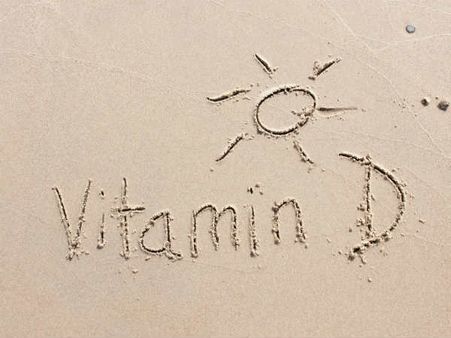
1. Vitamin D Deficiency In India
The prevalence of Vitamin D deficiency ranged from 40 per cent to 99 per cent, with most of the studies reporting a prevalence of 80 per cent to 90 per cent, and it is prevalent in all the age groups in India [4].

Vitamin D is particularly important in the absorption of calcium in the body and maintains bone density. Vitamin D deficiency can lead to decreased bone density and affect the thyroid gland's function, which is responsible for body metabolism. Lack of vitamin D is quite common today, partly due to the use of sunscreen and less sun exposure.

Other reasons for this deficiency are functional problems of the liver and kidneys (both help to transform the vitamin obtained from food into its active form in the body). You can check the level of vitamin D with the help of a simple blood test. After consulting with your physician, you can take it as a supplement. You can also get it from the following food sources fish, dairy products fortified with vitamin D and eggs [5].
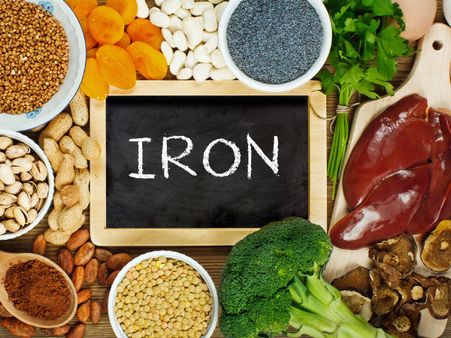
2. Iron Deficiency In India
Studies point out that India's high prevalence of iron-deficiency anaemia is largely due to the local vegetarian diet and is highly prevalent among adolescent girls in India [6]. Iron is a mineral component of red blood cells. If you lack iron, you may feel anaemia, fatigue and dizziness. You can find if you lack iron by undergoing a blood test.
One can consume animal sources (of iron) such as meat, poultry, fish and eggs. One can also get iron from vegetarian food sources such as beans and other green vegetables and increase its absorption by combining iron-rich foods with vitamin C (citrus fruits) [7].
Some foods interfere with iron absorption. Calcium-containing foods such as dairy products or foods that contain caffeine like coffee and tea decrease the absorption of iron. So, you should eat these foods separately from foods containing iron. If you had fish for lunch, drink coffee two hours after the meal [8].
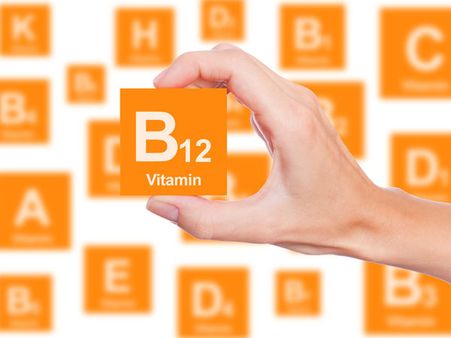
3. Vitamin B12 Deficiency In India
Vitamin B12 deficiency is believed to be widespread in the Indian population [9]. Vitamin B12 helps to build red blood cells in our body and nervous system function. This deficiency may lead to fatigue, tingling in the feet or tips of the palm fingers and even depression. Foods that contain vitamin b12 are animal sources such as meat, poultry, fish and eggs. Vegetarians must emphasize getting this vitamin from supplements after consulting a doctor.
Note: If you are taking iron and folic acid supplements, then the symptoms of vitamin B12 deficiency may not appear. So, check your vitamin B12 levels if you take iron and folic acid supplements to make sure there's no deficiency.

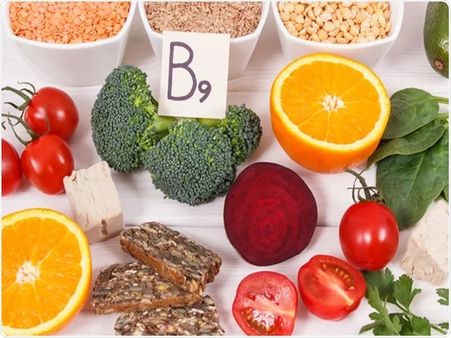
4. Folate Deficiency In India
Studies point out that folate deficiency in India ranges from 1.2 per cent to 26.3 per cent [10]. Folate is the naturally occurring form of vitamin B9 and is responsible for forming DNA, RNA and is the building block of the cells. In addition to this, folate plays an important role during pregnancy, helping prevent congenital disabilities like spina bifida in newborns. Some studies have pointed out that (based on the North Indian population) folate deficiency among preschool children and adolescents were shown to be around 40 to 60 per cent [11].
Food sources of folate include leafy green vegetables, citrus fruits, kidney beans, eggs and legumes.

5. Calcium Deficiency In India
According to recent reports, in 22 states of India, 40.6 per cent have dietary calcium deficiency in critical years of growth, and 8 per cent have calcium deficiency in adults and post menopause [12]. Calcium is one of the important nutrients required for bone health and every cell in your body. It mineralizes bones and teeth, especially during times of rapid growth. One needs to consume fish with bones, dairy products and leafy green vegetables.

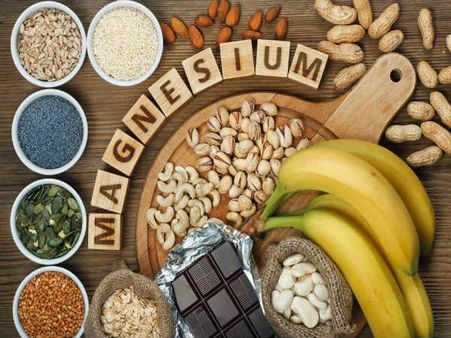
6. Magnesium Deficiency In India
Magnesium is an essential mineral for our body. It has great importance in facilitating the heart and nervous system's proper functioning and preventing muscle contraction [13]. A close relationship has also been found between lack of magnesium and increased blood sugar levels. Therefore, it is recommended for people with diabetes to consume it as part of maintaining sugar balance in their body.
The deficiency may arise from its limited consumption of food due to increased physical activity and calcium intake that compete for magnesium absorption into our bodies. Magnesium can be gained by consuming vegetables, beans, green vegetables, nuts, seeds, almonds, avocados and whole grains such as whole-wheat bread and brown rice [14].

7. Omega-3 Deficiency In India
Studies show that India has a shocking level of omega-3 deficiency, which can elevate the chronic illness rate over the coming decades. Omega 3 is an unsaturated fatty acid that helps anti-inflammatory processes in the body. It has also been found that this acid helps reduce the risk of heart and blood vessels diseases and may help manage depression symptoms [15].

Both omega-3 and omega-6 fatty acids are necessary to our bodies and can be attained through foods such as salmon, tuna, mackerel, sardines etc. Nuts and seeds such as flaxseed, chia seeds, walnuts, and plant oils such as flaxseed oil, soybean oil, and canola oil are also healthy sources of omega-3 fatty acids.

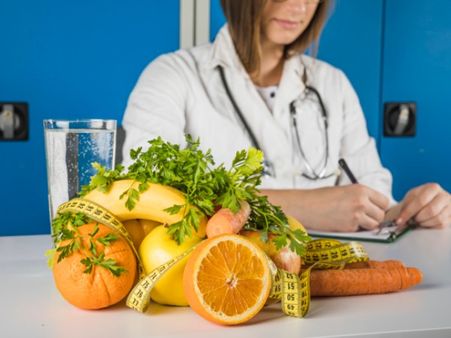
On A Final Note…
The common symptoms of vitamin deficiencies are brittle hair and nails, mouth ulcers, bleeding gums, poor night vision and white growths on the eyes, dandruff and patches, hair loss, red or white bumps the skin and restless leg syndrome. A blood test can help you find out exactly what type of vitamin deficiency you are suffering from and get the right treatment for it.
-
 healthExclusive: Doctor Shares Why Women Should Prioritize Health, Key Resolutions For Well-being And Vitality
healthExclusive: Doctor Shares Why Women Should Prioritize Health, Key Resolutions For Well-being And Vitality -
 healthWorld Health Day 2024 Wishes: Greetings, Messages, Images, Posters, Texts, Twitter And WhatsApp Status
healthWorld Health Day 2024 Wishes: Greetings, Messages, Images, Posters, Texts, Twitter And WhatsApp Status -
 healthWorld Health Day 2023:Health Tips For Men And Women Above 60 From A Doctor
healthWorld Health Day 2023:Health Tips For Men And Women Above 60 From A Doctor -
 healthWorld Health Day: 4 Ways Ayurveda Can Benefit Your Mind And Body
healthWorld Health Day: 4 Ways Ayurveda Can Benefit Your Mind And Body -
 healthWorld Health Day: Tips For Developing Balanced Eating Habits
healthWorld Health Day: Tips For Developing Balanced Eating Habits -
 wellnessFocus On Affordable Healthcare Ensured Savings For Poor, Middle Class: PM Modi On World Health Day
wellnessFocus On Affordable Healthcare Ensured Savings For Poor, Middle Class: PM Modi On World Health Day -
 wellnessWorld Health Day 2022: How To Help Someone Quit Smoking; Does Support Work? A Step-by-Step Guide
wellnessWorld Health Day 2022: How To Help Someone Quit Smoking; Does Support Work? A Step-by-Step Guide -
 wellnessApollo Hospitals' Report Highlights Impact Of Lifestyle Choices On Health, Well-Being
wellnessApollo Hospitals' Report Highlights Impact Of Lifestyle Choices On Health, Well-Being -
 wellnessObesity Main Reason In 35+ Women For Poor Diabetes Control, Heart Disease Risk: Study
wellnessObesity Main Reason In 35+ Women For Poor Diabetes Control, Heart Disease Risk: Study -
 wellnessExpert Article: Exploring The World Health Day 2022 Theme Through An Ayurveda Perspective
wellnessExpert Article: Exploring The World Health Day 2022 Theme Through An Ayurveda Perspective -
 wellnessWorld Health Day 2022: Date, Theme, History And Significance Of The Day
wellnessWorld Health Day 2022: Date, Theme, History And Significance Of The Day -
 diet fitnessWorld Health Day 2022: Amazing Health Benefits Of Laughter Yoga And How To Perform It
diet fitnessWorld Health Day 2022: Amazing Health Benefits Of Laughter Yoga And How To Perform It


 Click it and Unblock the Notifications
Click it and Unblock the Notifications



